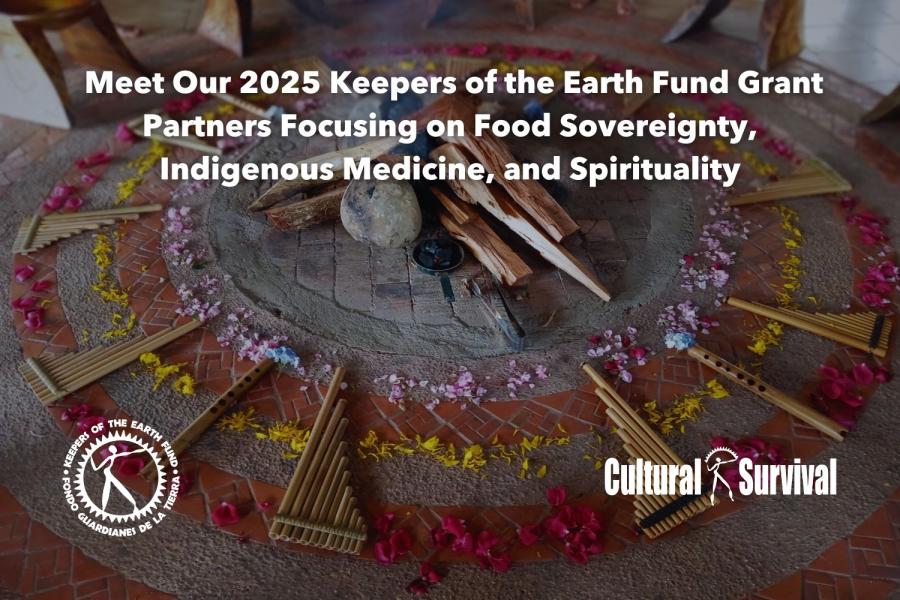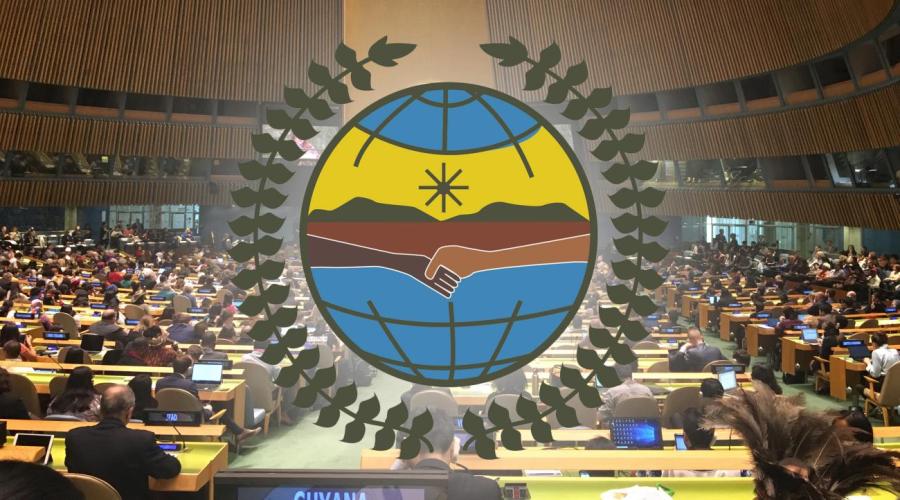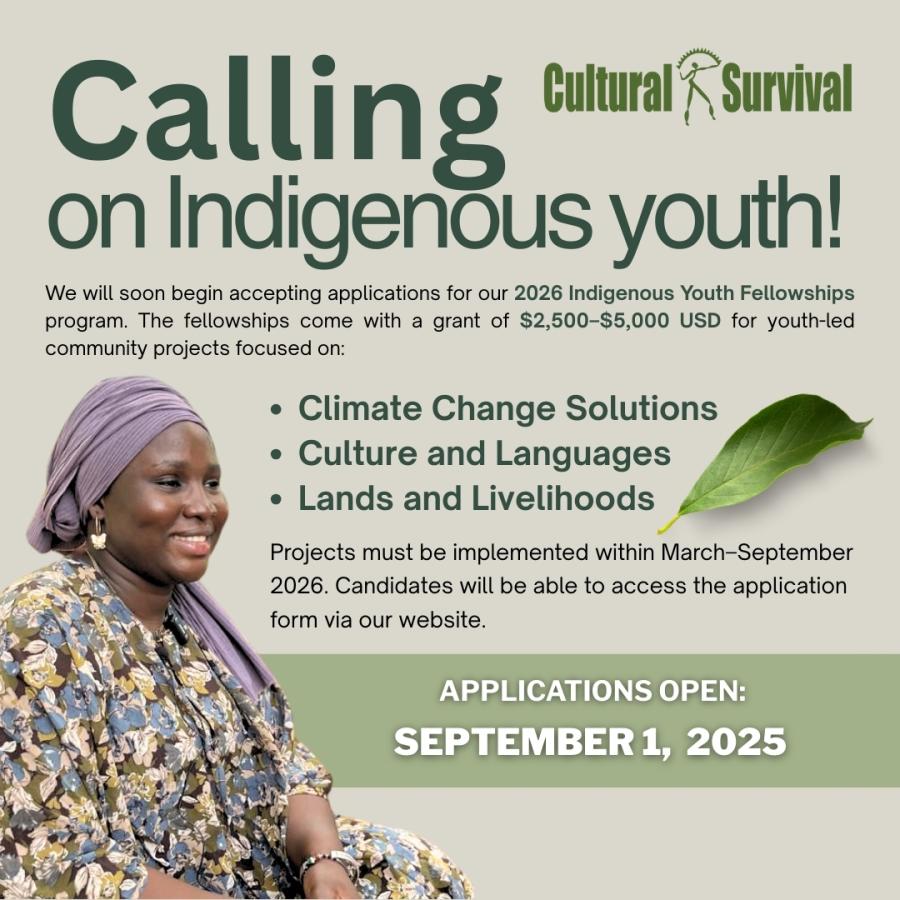
Cultural Survival’s Indigenous Community Media Fund provides funding opportunities, accompaniment, and training to Indigenous community media platforms to carry out their crucial informational, documentary, and cultural work within and outside their communities. Since 2017, the Indigenous Community Media Fund has awarded 298 grants, supporting community media projects in 29 countries across 3 continents, totaling $1,772,361.
In 2023, thanks to generous donors and supporting foundations, the Indigenous Community Media Fund distributed $420,000 to 60 Indigenous communication projects that will benefit 87 Indigenous Peoples in 20 countries.
Considering the pressure and historical dispossession faced by Indigenous communities by extractive industries, heightened today by the high demand for transition minerals (lithium, nickel, cobalt, copper, etc.) in demand for the development and transition to a green, low-carbon economy, this year, the Indigenous Community Media Fund allocated 35 percent of our funding ($150,000) to support 18 communication projects working to raise awareness about or mitigate the impacts of mining for transition minerals on Indigenous communities. These efforts are being led by collectives and Indigenous community media in Asia, Africa, and America. Two of these projects support community media networks in Bolivia and Argentina.
Indigenous territories contain significant amounts of untapped heavy metal reserves around the world, putting Indigenous lands and communities at risk. Of 5,097 mining projects globally that involve some 30 minerals used in renewable energy technologies, 54 percent are located on or near Indigenous Peoples' lands and territories. About 80 percent of the world’s remaining biodiversity is managed by Indigenous Peoples, but irresponsible mining is threatening it. There is a critical need to support affected and at-risk Indigenous communities to exercise their right to self-determination and Free, Prior and Informed Consent when mining for transition minerals is proposed on their territories.
Meet some of our grant partners working to raise awareness and mitigate the impacts of mining for transition minerals on their communities. Those who gave consent to be listed publicly are found below.
Individual Projects
Avispa Mídia, Multimedia Production (Mixteco-Chinanteco), México
Avispa Mídia is a collective of independent communicators whose objective is to promote communication for political action and contribute to processes of building and strengthening the autonomy and self-determination of Indigenous Peoples in the face of political, environmental, and social conflicts in their territories. Their grant project, "Information Campaign: What are transition minerals and why are they so coveted today?" will disseminate relevant information on the ongoing and potential repercussions of the green energy transition on Indigenous territories. They seek to inform affected communities about the pros and cons to enable them to make conscious decisions in the face of these mining projects.
Ecos de la Sal Radio Indígena Comunitaria (Echoes of Salt Indigenous Community Radio), Analog Radio (Popoloca), México
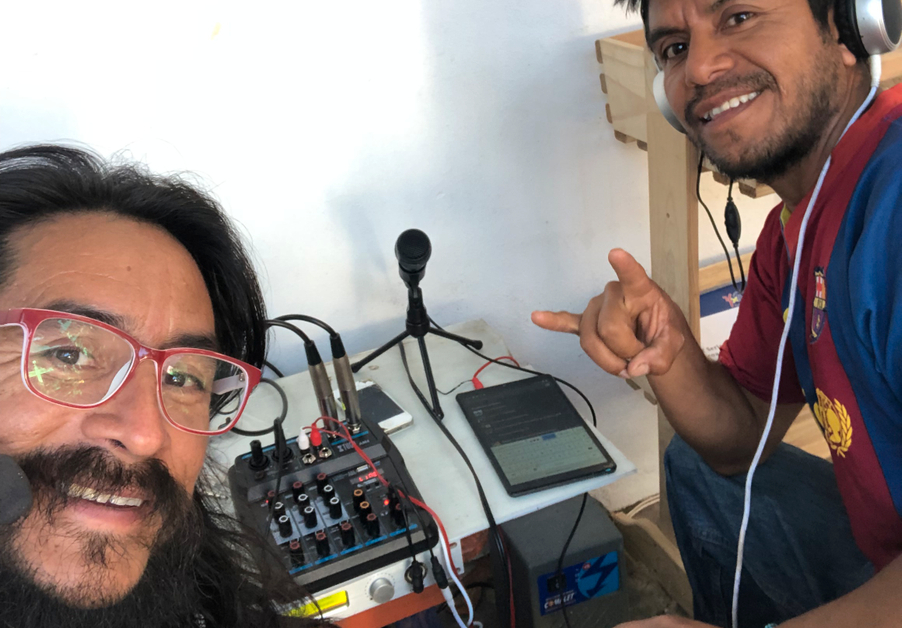
Echoes of Salt is committed to raising awareness and informing its community about the problems that affect them. Among these problems are land dispossession, looting, destruction of flora and fauna, contamination of aquifers, and the various social challenges arising from mining activities. Located near Mexico's second-largest lithium reserve, their grant project will focus on capacity building and the creation of radio and audiovisual content on lithium exploitation, aiming to inform their community about environmental and social impacts, and offer answers to these challenges.
Mapuche Mapuexpress Informative Collective, Multimedia Production, (Mapuche) Chile, Wallmapu
Mapuexpress’ objective is to influence decision-making in their territories to stop the advance of the capitalist, neoliberal, extractivist, and patriarchal development models while revitalizing and strengthening the collective kvme mongen or "good living", the autonomy and self-determination of Mapuche Peoples and all Peoples. Their grant project, "Communication and Resistance against mining threats in the Fütawillimapu: Choyipe Taiñ Newen mapu, that our strength of the Earth be reborn," seeks to produce and disseminate information through a digital booklet and podcasts on the impacts of mining for transition minerals in the Province of Osorno, Fütawillimapu, Ngulumapu. They hope to create this content to be accessible and analytical and told from the voices, testimonies, and experiences of Mapuche people.
Kurruf Radio, Online Radio (Mapuche), Chile
Kurruf Radio produces and disseminates information daily, covering situations not addressed by mainstream media. They focus on community interests, demands, defense of territories, and the search for Good Living in Ngülumapu, the ancestral Mapuche territory west of the Andes. Their grant project seeks to cover the conflict in Penco, a community of 46,000 people, where a rare earth mining project has generated resistance from feminist, environmental, and Indigenous organizations and communities. The groups opposing the mining are advocating for the creation of a park to protect the local ecosystem. They will also purchase equipment and conduct workshops to train local youth and advocates in the use of communication tools.
Xilotepek Community Radio, Analog Radio (Maya Achi), Guatemala
Xilotepek Radio was created to protect their environment, as well as to promote Maya Achi culture and language. They have spotlighted the work of several resistance and land defense movements. In 2016, they were part of a collective that promoted community consultation related to mining and megaprojects in their municipality. Their grant project, “Naqab'ie Reh Hinqakiruaqsaa Qawi'ariik” (Walking Towards Good Living) aims to raise awareness about the impacts of mining for transition minerals on the environment, community, and culture.
Jun Toj Community Radio, Analog Radio (Maya Achi), Guatemala
Jun Toj Community Station is managed by the Maya Achi Cultural Educational Association, a non-profit entity founded to strengthen, promote, preserve, respect, and disseminate the cultural, educational, moral, and philosophical values of the Maya Achi culture. Their grant project is to create radio programs, organize a workshop on transition minerals, and purchase a transmitter to improve their broadcast capacity. The radio programs will be broadcast in Maya Achi and Spanish languages, covering mining exploitation, its effects on the population, and cultural and linguistic themes.
Xyaab' Tzuultaq'a Community Radio, Analog Radio (Maya Q'eqchi'), Guatemala
Xyaab' Tzuultaq'a Community Radio serves urban and rural communities and promotes the identity, worldview, and struggles of the Maya Q’eqchi’ People in El Estor Izabal. It is managed by the Estoreña Association for Comprehensive Development - AEPDI, a non-profit organization working to build more dignified conditions of life, work, education, freedom, and civic participation. The activities of the Fénix nickel mine in El Estor have caused pollution, social conflicts, evictions, economic dependence, poverty, and malnutrition. Station members want to inform the population about the 2019 Inter-American Court of Human Rights verdict in favor of Indigenous community radio and expose violations in community consultation processes. They seek to propose a sustainable development model based on agroecology, solidarity economy, and environmental protection.
Uqul Tinamit Community Radio, Analog Radio (Maya Achi), Guatemala
Uqul Tinamit serves many population sectors by promoting human rights and Maya Achi culture. They are a group of youth, women, and Maya speakers who offer their time for the benefit of their community. Their grant project is an information and awareness campaign about the impacts of mining for transition minerals. They will write and produce radio programs, a video report, and short videos in Spanish and Achi Maya. Their productions will be broadcast on the radio and shared on social media networks so that the population in their region is informed.
ORARI Mamasa, Analog Radio (Mambi, Bambang, Mala'bo, Aralle, Tabulahan and Mamasa), Indonesia
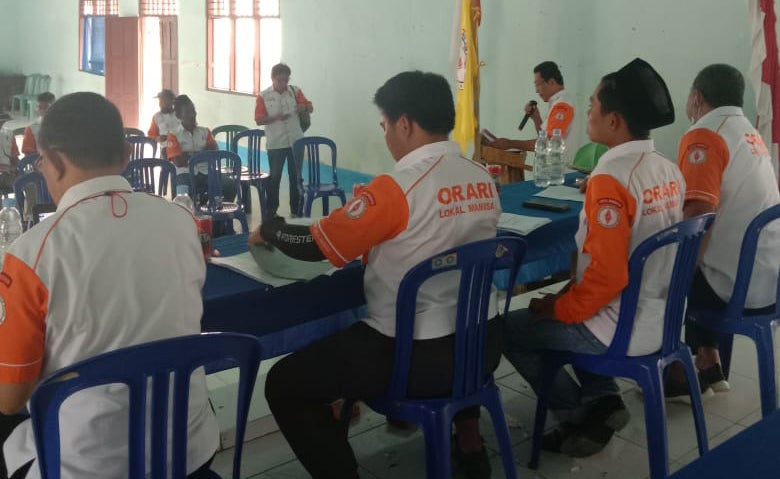
ORARI Mamasa brings together broadcasters from Mamasa to exchange information and communication between Indigenous communities. They support the struggles of Indigenous Peoples to defend their traditional territories amidst the onslaught of mining activities. They will conduct interviews about the responses of Indigenous Peoples, government officials, and community leaders regarding mining for transition minerals in the Indigenous areas of Aralle, Tabulahan, and Mambi. Their grant project is both a media campaign to raise awareness about the operations of the mine and will also support their primary means of communication. They hope the community will understand the dangers of destroying nature so that they are not easily persuaded by the companies that will take their land.
Kelung Media Siber / kelung.id, Multimedia Production (Minahasa), Indonesia
Kelung.id is a media outlet that prides itself on quality journalism. Their grant project aims to raise local people's awareness about the mining activities that are taking their lands, polluting their rivers, and creating health risks. They are working to unify people around the common goal of stopping further expansion of the mining area. Their goal is to revitalize their Minahasa culture and provide local people with journalism and writing skills so they can document their own language and traditions. They are also working to restore a historical site near the mining area and grow plants for ritual purposes on the community border.
Terra FM Radio, Analog Radio (Bagungu, Jonam, Batwa, Mbute, Lendu and Baka), Uganda and The Democratic Republic of the Congo
Terra FM raises awareness of issues in the Albertine Region in Uganda and the DRC, and provides local communities with access to environmental education, Indigenous cultural information, and information on basic human rights, including Free, Prior, and Informed Consent. The DRC is home to over 70 percent of the world's cobalt reserves. Mineral extraction in the country has been plagued by corruption, environmental degradation, and human rights abuses. With the goal of building an opposition movement, the station will produce radio programs on child labor in mines, conduct training programs on cybersecurity and investigative journalism, write a report on the human rights impacts of mining, create a website, and distribute printed materials on the issue.
Radio Mars, Analog Radio (Tou Mu'ung, Tombulu and Minahasa), Indonesia
Radio Mars aims to educate the public about the environment and the threats posed by mining. They act as a means to strengthen cultural values and provide an advocacy platform against the onslaught of environmental threats faced by Indigenous communities, and criminalization and persecution by governments and corporations. Their grant project aims to provide a space for Indigenous Peoples to voice their concerns, promote informed dialogue, encourage responsible mining practices, and increase transparency and accountability in the mining sector.
Itombwe Community Radio, Analog Radio (Batwa), Democratic Republic of Congo
The Union of Indigenous Peoples manages Itombwe Community Radio for Peace and Endogenous Development (UPADE), an organization that supports Indigenous women and youth and mobilizes all members of the community to secure respect for human rights. Their grant project will produce radio programs on the impacts of mining for transitional minerals in the Batwa territories by supporting capacity building and equipping the two Indigenous radios in South Kivu, Itombwe Community Radio and Radio Voix de la Femme Autochtone. They aim to fight against the lack of information on mineral exploitation in the communities, raise awareness, and ensure companies respect the community’s right to Free, Prior and Informed Consent before any intervention.
Kivu FM Community Radio - Pygmy Women in Action FEPA ASBL, Analog Radio (Batwa and Mbuti), Democratic Republic of the Congo
KIVU FM’s objective is to help Indigenous women to defend their rights in a non-violent manner. Their grant project will support the Batwa and Mbuti in asserting their rights, which have been violated by mining operations for transition minerals. They will train 25 Pygmy women, including 7 journalists, and 25 Pygmy men in land rights and the mining code and support them in producing and broadcasting programs on the impacts of mining for transition minerals on the radio station. They will also press political and administrative authorities in South Kivu to secure Indigenous Peoples’ rights, improve the station's equipment, produce a film, and organize mobile cinema screenings in the mining areas not reached by the community radio station.
Collective Projects
Voices Collective, Multimedia Producer (Kolla), Argentina
Colectivo Voces is a media network whose objective is to enable various social organizations and Indigenous Peoples to overcome the information blockade of the mainstream media and build solidarity and popular communication collectives in different spaces. Their grant project, "Weaving Voices," arises from seeing the violation of Indigenous Peoples’ rights in Jujuy by the lithium exploitation projects, which have the full support of the provincial government. They will hold meetings to provide technological tools and practical recommendations to support communication processes and the creation of community communication channels.
Wayna Tambo - Diversity Network, Media-Communicators Network (Aymara and Quechua), Bolivia
Wayna Tambo seeks to contribute to the invigoration of their community from the perspectives of “Vivir Bien” (Living Well) and plurinationality. They want to have an impact on the co-responsible management of the public sphere and on the strengthening of the continuities between the urban and the rural, from decolonizing, depatriarchalizing, demercantilizing and de-anthropocentric perspectives. For this they willimplement cultural, artistic, educational, communicative and economic strategies and actions. Their project will be developed in two areas of Bolivia. Reporters will be trained, and micro-programs, reports/notes and digital publications will be produced on the relationship between the extraction of transitional minerals and the dominant ways of life, on the multiple crises they are experiencing and their impact on the knowledge of Indigenous Peoples who resist and re-exist, in three languages: Spanish, Aymara and Quechua.
